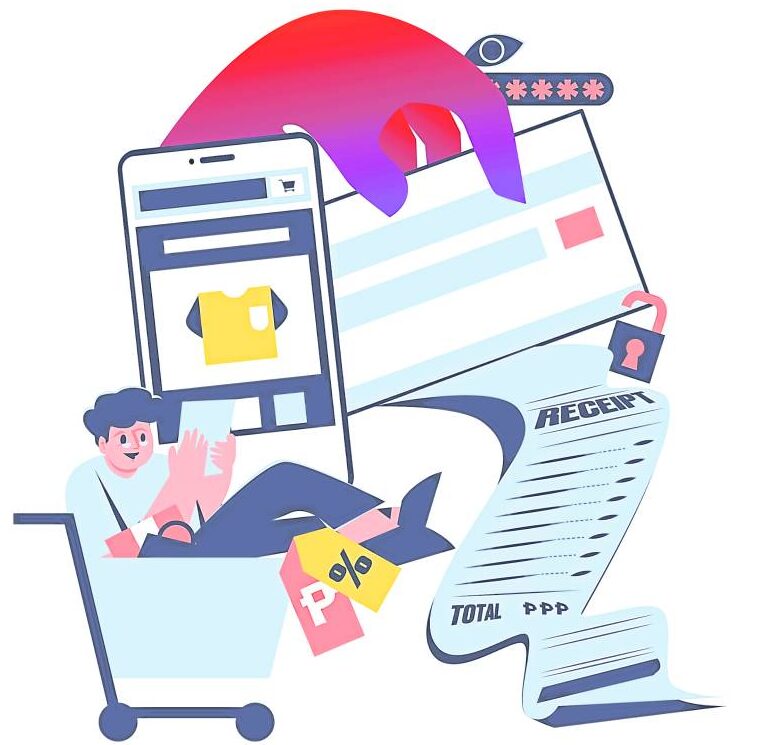Mobile-first shopping booms but COD payments still favored

ILLUSTRATION BY RACHEL REVILLA
In the advent of heightened digitalization, shoppers have now developed the habit of using mobile phones to purchase whatever they need and want, may it be groceries, a pair of shoes or the latest gadget hitting the shelves.
The online marketplace, indeed, has made it convenient to buy almost everything with just a few taps. A few days later, a package containing your purchase will arrive at the doorstep. No need to go out and queue up.
The buying spree is only expected to get bigger as the holiday season approaches.
In its study, mobile marketing platform InMobi reveals that 60 percent of shoppers in Southeast Asia—who are probably buying gifts for friends and relatives—claim to spend more on online shopping this year. InMobi surveyed 1,000 smartphone users in Indonesia, Singapore and the Philippines for the study.
Majority or 58 percent of the respondents already know what items to put in their cart but are still mulling over which brands to buy. The bestsellers include fashion and accessories, gadgets, personal care products, cosmetics and home appliances.
Article continues after this advertisementFor them, a mobile-first approach in shopping allows them to explore and search products, in addition to making the actual purchase. Think of it as window shopping but in the digital world. And they are usually browsing after 4 p.m. or around the time when they are about to clock out of work.
Article continues after this advertisement“Traditionally, Southeast Asia is a region where physical stores have played a prominent role. While our study found that stores are still important for shoppers here, it is exciting for us to note that more consumers are planning to use mobile as well during their shopping journey, and in fact, it is playing a dominant role,” says Rishi Bedi, managing director at InMobi for Asia Pacific.
Some 29 percent of the respondents are bargain hunters. These shoppers are taking advantage of the glut of app-only discounts, as big online shopping platforms launch mega sale days like 11.11 and 12.12 events. About 13 percent, meanwhile, can be deemed as more experienced and decisive as they already know both the products and brands they want.
While mobile shopping is the popular option, InMobi notes that some still prefer buying at physical stores for big-ticket items like jewelry.
Trust in online payments
While online shopping has gained popularity, some Filipino shoppers may still have reservations with digital payments in completing their transaction.
A survey by market research firm Agile Data Solutions Inc. shows that 71 percent of consumers prefer cash on delivery (COD) as form of payment because they “lack trust in the products delivered.” Only 14 percent trust in-app wallets of e-commerce platforms.
“COD payments provide a sense of security for consumers, allowing them to withhold payment until they receive and inspect the item,” Agile Data Solutions founder and chair Jason Gaguan explains.
“Negative experiences, such as receiving counterfeit or damaged products and falling prey to fake sellers, also discourage potential shoppers and aggravate consumer distrust,” he adds.
As such, some 28 percent of the respondents identify product authenticity and product quality as top concerns when shopping online. They make sure to check online reviews to guide them when making purchases.
Gaguan suggests that e-commerce platforms establish “clear, efficient and transparent returns, reimbursement and warranty policies to address customer distrust.”
Holiday scams
Unfortunately, the shoppers are not only at risk of receiving substandard or fake items; they are also exposed to potential scams.
Cybersecurity firm Kaspersky has previously warned about the surge of e-commerce-related frauds during the holidays, with phishing as one of the most common ways to launch a digital attack.
Phishing is a fraudulent activity whereby hackers trick victims into providing their personal information, such as contact details. Getting ahold of this information can allow hackers to take over one’s account.
This kind of attack is usually launched via emails and mobile messages. Cyber experts always tell the public to just ignore these to avoid falling victim.
Kaspersky, in addition, advises online shoppers to always check their payment history.
“If you spot something suspicious, call your bank immediately. Any unexpected debit, even of a tiny amount, should ring an alarm bell, because it may be scammers floating a trial balloon, or the first automatic payment for a subscription you didn’t ask for,” the company warns.